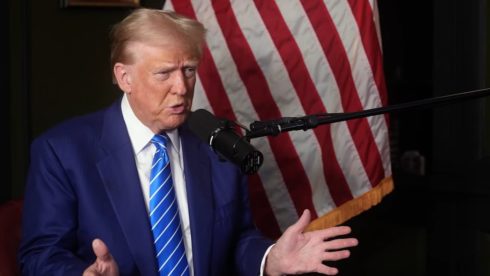As Donald Trump prepares for his return to the White House on January 20, 2025, the team behind his proposed administration is shaping up with a mix of high-profile figures and controversial appointees. With the goal of delivering Trump’s policy agenda, these selections reflect a strong inclination toward loyalists and well-known figures from conservative circles, alongside a few unexpected names that have sparked debate. Here’s a closer look at some of Trump’s prominent choices for top cabinet roles and the challenges they may face.
Secretary of State: Marco Rubio
Florida Senator Marco Rubio has been tapped for the role of Secretary of State, a pivotal position that will place him as the nation’s chief diplomat and primary foreign affairs advisor to Trump. Known for his staunch stance against China, Rubio, 53, has been vocal about his hawkish foreign policy views, aligning with Trump’s broader agenda of economic competition and geopolitical rivalry with Beijing. While Rubio and Trump were once rivals in the 2016 Republican primaries, their alliance has strengthened over the years, leading to his selection for this prominent position.
If confirmed, Rubio would make history as the first Latino to hold this role, a landmark achievement that reflects Trump’s growing support within Hispanic communities. However, his confirmation process may be contentious. Rubio’s hardline positions on international issues could face scrutiny from Democratic senators, especially those who view his stance on China as excessively confrontational. With the possibility of narrow margins in the Senate, even a handful of dissenting Republicans could complicate Rubio’s path to confirmation.
Trump choice of Secretary of Defense: Pete Hegseth
Trump’s choice of Pete Hegseth for Secretary of Defense brings another loyalist into a crucial national security role. A Fox News host and military veteran, Hegseth lacks traditional political experience, which has both fueled support from Trump’s base and raised concerns about his suitability for such a high-stakes position. Hegseth’s appointment is timely, given ongoing international conflicts in Ukraine and Gaza. Known for his staunch pro-military stance, Hegseth is expected to align with Trump’s America-first military policies.
However, Hegseth’s past controversies may pose hurdles in his Senate confirmation. In 2017, he was investigated for an alleged sexual assault, a claim he denies, though he reportedly made a settlement payment to a woman involved in the case. While Trump’s administration is pushing forward with Hegseth’s nomination, his background could lead to intense questioning by Senate members. Democrats, and possibly some moderate Republicans, may express doubts about his ability to lead the Pentagon amid these unresolved issues.
Health and Human Services: Robert F. Kennedy Jr.
Perhaps the most surprising pick is Robert F. Kennedy Jr., a longtime vaccine skeptic and the nephew of President John F. Kennedy, who has been named for the Department of Health and Human Services (HHS). Despite lacking medical qualifications, Kennedy has gained a following for his outspoken views on health issues, particularly those related to vaccine safety and pharmaceutical regulations. In his new role, he would oversee major federal health agencies, including the FDA and CDC, sparking concern among public health experts who fear his views may conflict with evidence-based health policies.
Kennedy’s controversial stance on vaccines has drawn criticism from the medical community, which worries about the potential spread of misinformation from the nation’s top health official. Additionally, questions remain about his security clearance, particularly given previous incidents, including a bear carcass disposal in Central Park that drew legal attention. Kennedy’s potential impact on food and drug safety regulations has garnered some bipartisan support, but his nomination is likely to encounter substantial resistance from Democratic senators.
Homeland Security: Kristi Noem
South Dakota Governor Kristi Noem is Trump’s pick to lead the Department of Homeland Security (DHS), a position overseeing a broad array of agencies responsible for U.S. security, border protection, and emergency response. Noem, a staunch supporter of Trump’s border policies, is anticipated to continue efforts to fortify the southern border and enforce stricter immigration regulations. DHS, with its $62 billion budget, also includes agencies focused on counterterrorism and cybersecurity, two areas where Noem has limited experience but has voiced strong opinions.
Noem’s conservative record has drawn both support and opposition, with her stance on social issues and strict immigration policies aligning closely with Trump’s vision. However, her lack of direct experience in homeland security has raised eyebrows among critics, who argue that DHS requires a leader with extensive experience in managing complex, large-scale operations. Noem’s confirmation hearing may focus on her qualifications and ability to manage crises, particularly as cybersecurity and domestic terrorism remain pressing threats.














